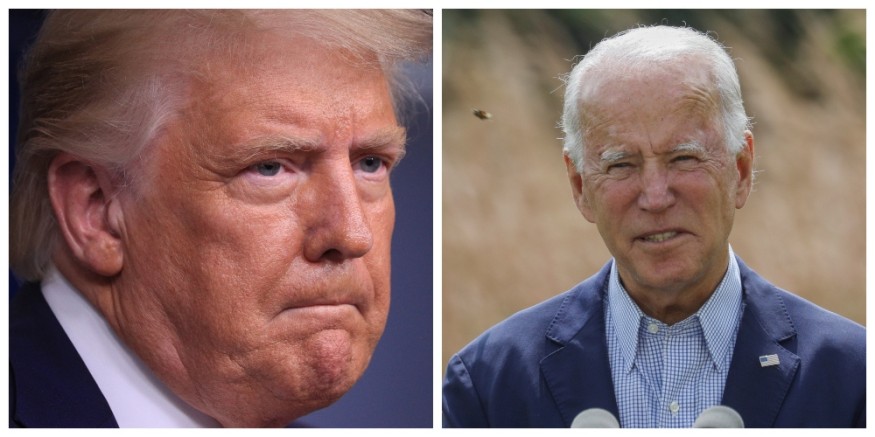Here's the Scenario in Case Trump, Biden Tie in Electoral College Vote
The 2020 U.S. presidential election is only days from now, and no one can still say who between President Donald Trump and Joe Biden will win. But in case of a tie in the Electoral College vote, this is the scenario that could happen.

Millions have already cast their votes ahead of the presidential election on Nov. 3. However, it is still unpredictable, who between the presidential and vice-presidential candidates would win, and there could even be a tie in the Electoral College vote.
The Electoral College, which consists of 538 votes, is distributed among all 50 states in the country, including Washington, D.C.
For a candidate to become the president, he needs to win the majority of these votes or with an absolute of 270. However, since 538 is an even number, there is a possibility that both candidates will receive 269 electoral votes each.
If this happens, the Senate and House of Representatives will vote to break the tie, according to a published report in Fox News. Moreover, the process of voting will not be the same during this time.
Even though the House of Representatives has 435 members, each state will only receive one vote. Thus, party affiliation is very vital to break the Electoral College tie.
For example, in Maryland, where there are seven Democratic and one Republican Representative, the vote is expected to come from the Democratic members, and they are more likely to vote for their Democratic presidential bet.
On the other hand, the state of Florida has 13 Democratic and 14 Republican representatives. In this scenario, the vote will go towards the Republican candidates like President Donald Trump. But things are still unpredictable.
The House of Representatives and the Senate will vote separately. The House of Representatives will vote for the president, while the Senate will vote for the vice president if an Electoral College tie would happen.
Many criticized this procedure. Critics said that this is vastly disproportionate because the top 10 largest states, which are comprised of 50 percent of the country's population, will only have 20 percent of the vote in breaking the tie.
Meanwhile, the remaining 40 states with less than half of the country's population will get 80 percent of the vote.
Suppose the House of Representatives cannot decide who will be the president, and the Senate has already decided for the vice president. In that case, he will automatically become the country's acting president.
And suppose both chambers cannot decide who will be the president and vice president, then the House Speaker will become the president until both Congress and Senate determine who is the best for the position.
This will not be the first if a tie happens in the upcoming election. The same fate occurred in 1800 during the presidential election between Thomas Jefferson and Aaron Burr. Both of them received 73 electoral votes when there were still fewer states in the country.
Check these out!
Subscribe to Latin Post!
Sign up for our free newsletter for the Latest coverage!













